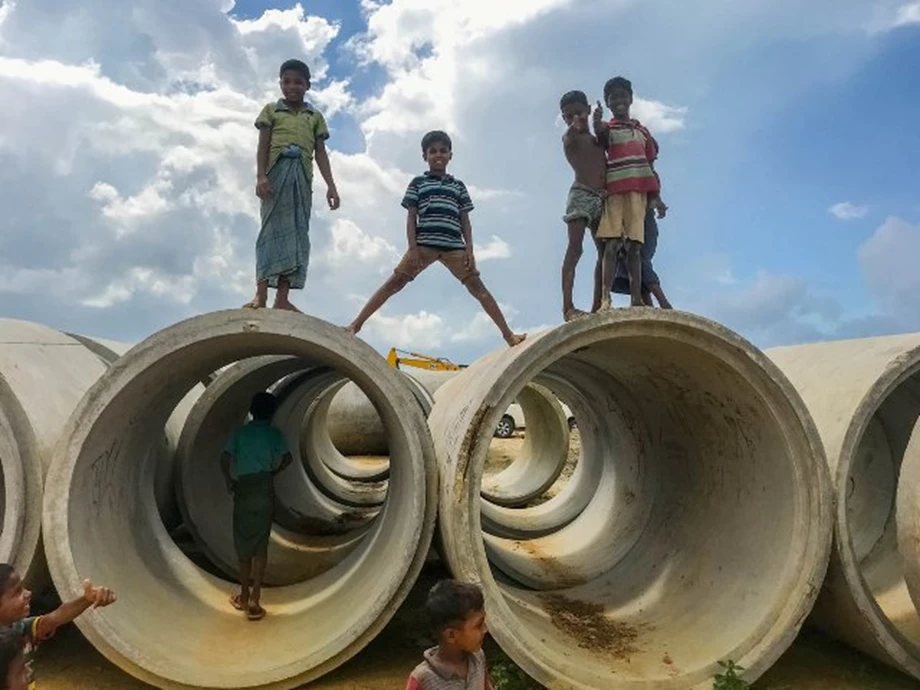IOM medical escorts travel with Bangladesh migrants

Image collected
This week (30/09), 164 migrants arrived home on a Voluntary Humanitarian Return (VHR) flight from Libya. Aboard the charter, which landed at Dhaka's Hazarat Shajalal AIRPORT TERMINAL (HSIA), were nine survivors of the tragic shooting in the Libyan town of Mizdah, where on 27 May, 30 migrants-including 26 Bangladeshis-were shot and killed in a smuggling warehouse.
With those survivors were other vulnerable migrants, including 39 people with medical ailments. IOM medical escorts travelled with the migrants to Bangladesh whereupon arrival health teams were readily available to coordinate look after requiring quarantine at government facilities. IOM teams will provide referral support to specialized services and follow-up with assist with migrants with chronic conditions.
Eligible migrants will receive reintegration support after they have completed their government-mandated quarantine period. Follow-up care is particularly important for folks who experienced physical and psychological trauma while stranded in Libya.
The deadly attack in Mizdah, southwest of Tripoli also left 11 other migrants critically injured. IOM and its own partners have supported those survivors in the months following violence.
"I can't your investment incident, it had been like living a nightmare," said Syed Khan. "I was shot, and it took me four months to recuperate enough to help make the journey home. Most of us haven't fully recovered and we remain traumatized. I am grateful to IOM and the federal government of Bangladesh for the medical and other support they provided in Libya and for arranging my flight home."
COVID-19 has exacerbated the vulnerabilities of migrant employees around the world, said Giorgi Gigauri, IOM Bangladesh's Chief of Mission.
"We will work to overcome movement and other restrictions to gain access to vulnerable migrants who are stranded and looking for support," IOM's Gigauri said. "We will work closely with the Government-in particular the Ministry of Expatriates' Welfare and Overseas Employment-to ensure their usage of health services, shelter, food, consular services. And, for the most vulnerable, flights home."
Most migrants will go back to Bangladesh through HSIA, the country's busiest airport. There IOM, in coordination with the Government's Communicable Disease Control (CDC) Division, has been working since March to build the capability of point of entry (POE) staff to identify, screen, and refer travellers with COVID-19 symptoms.
In Bangladesh, IOM supports the federal government at 20 of the 28 POEs in the country. COVID-19-responsive systems and procedures at POEs enable the safe re-entry of migrants while ensuring protection for frontline POE staff and communities in the united states.
Aside from on-arrival assist with migrants, IOM also provides tele-counselling, health referrals and follow-ups, skills diversification and financial literacy training, and reintegration support for the most vulnerable returning migrants.
To boost migrant protection, voluntary return and reintegration along the Central Mediterranean route in Africa, the European Union (EU), through the Emergency Trust Fund for Africa (EUTF), launched the Joint Initiative for Migrant Protection and Reintegration in Africa with IOM in 2016.
Source: https://www.devdiscourse.com
Tags :
Previous Story
- Students against privatisation of the jute industry
- Covid-19 impacts on life cycle deficit in Bangladesh
- EU trade benefits may continue even after LDC...
- 36pc want to visit for business, 31pc for...
- Govt to hire for 12,600 posts to market...
- 90pc business software in Bangladesh is pirated: US...
- Alternative loan release process necessary for small-scale businesses
- Salman: Economic diplomacy to keep with major global...